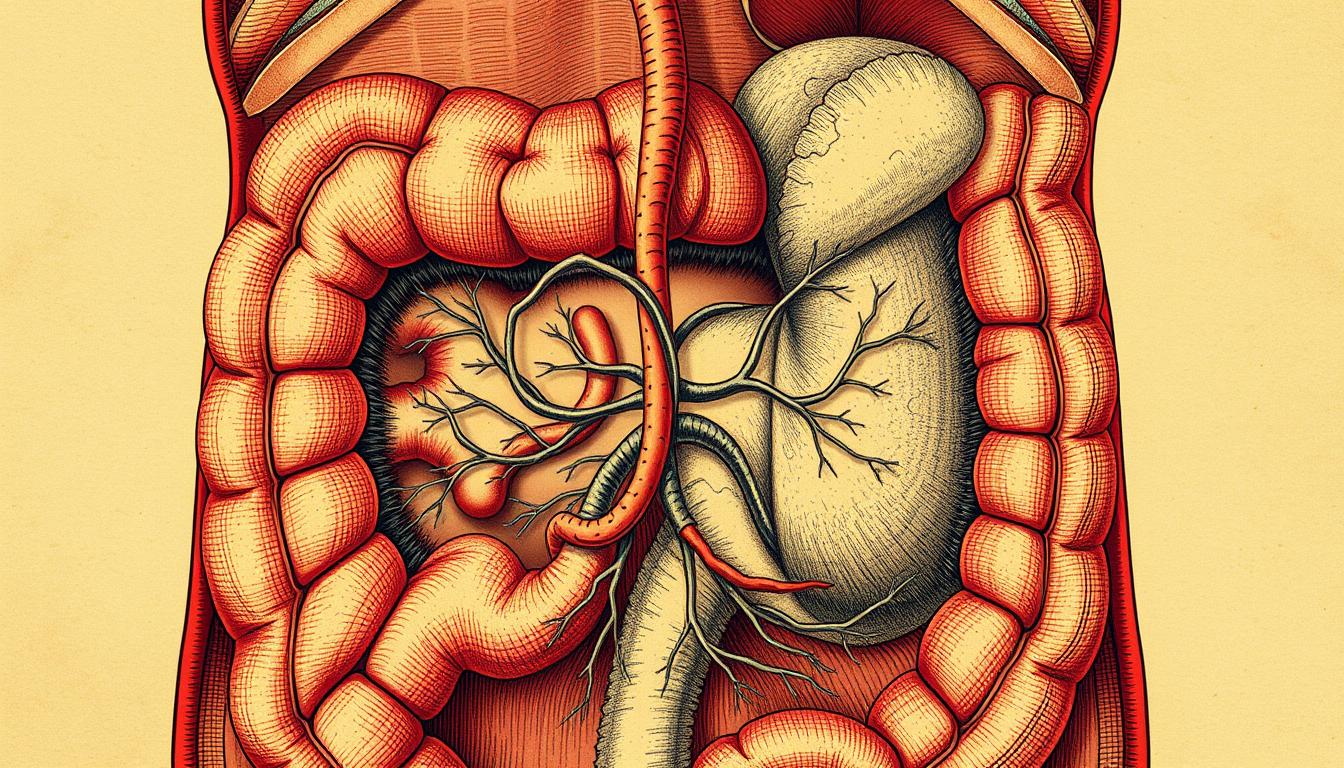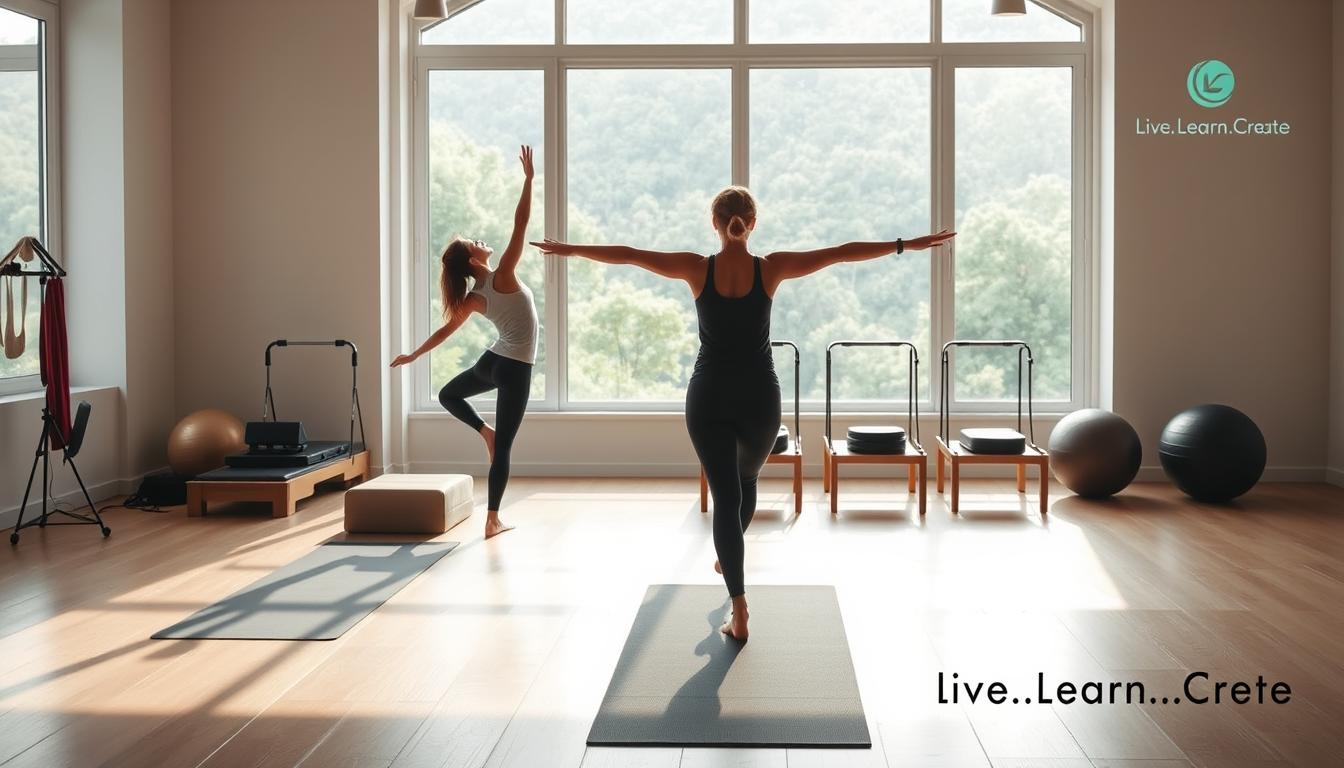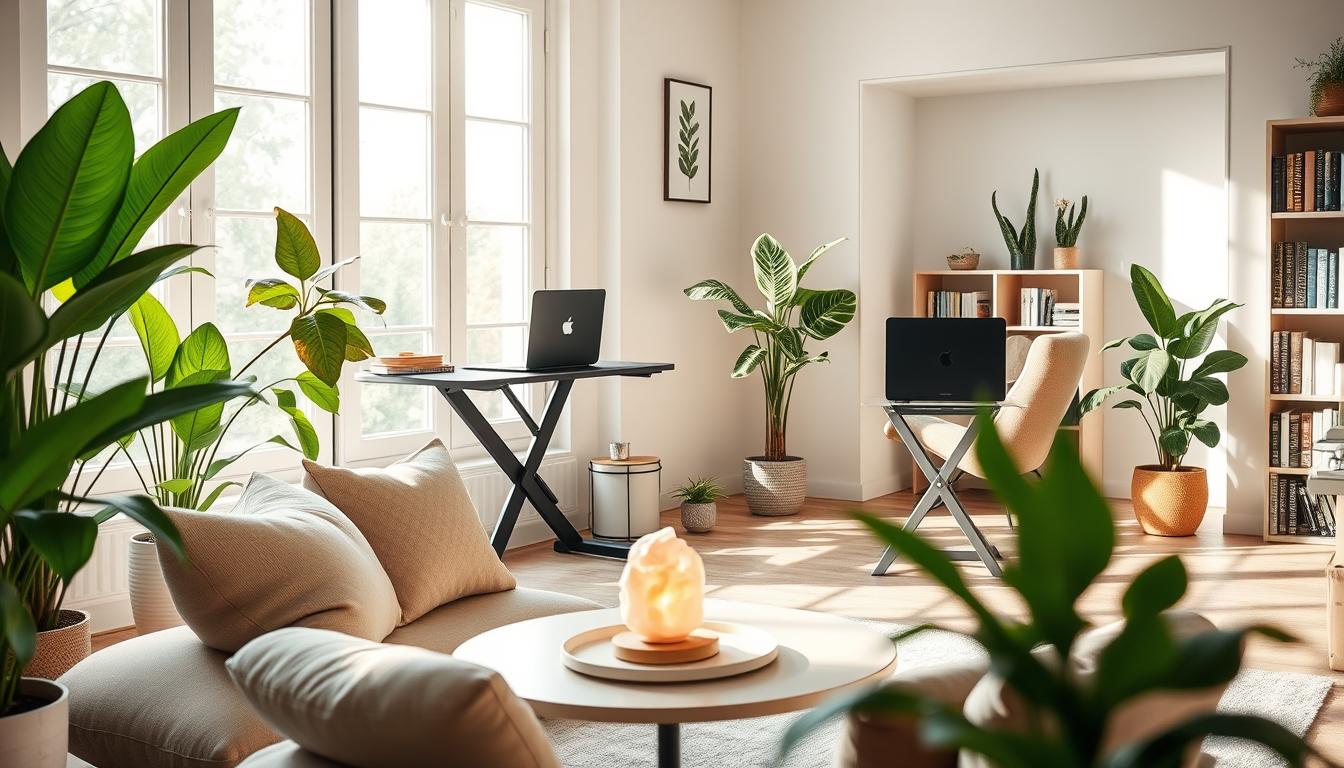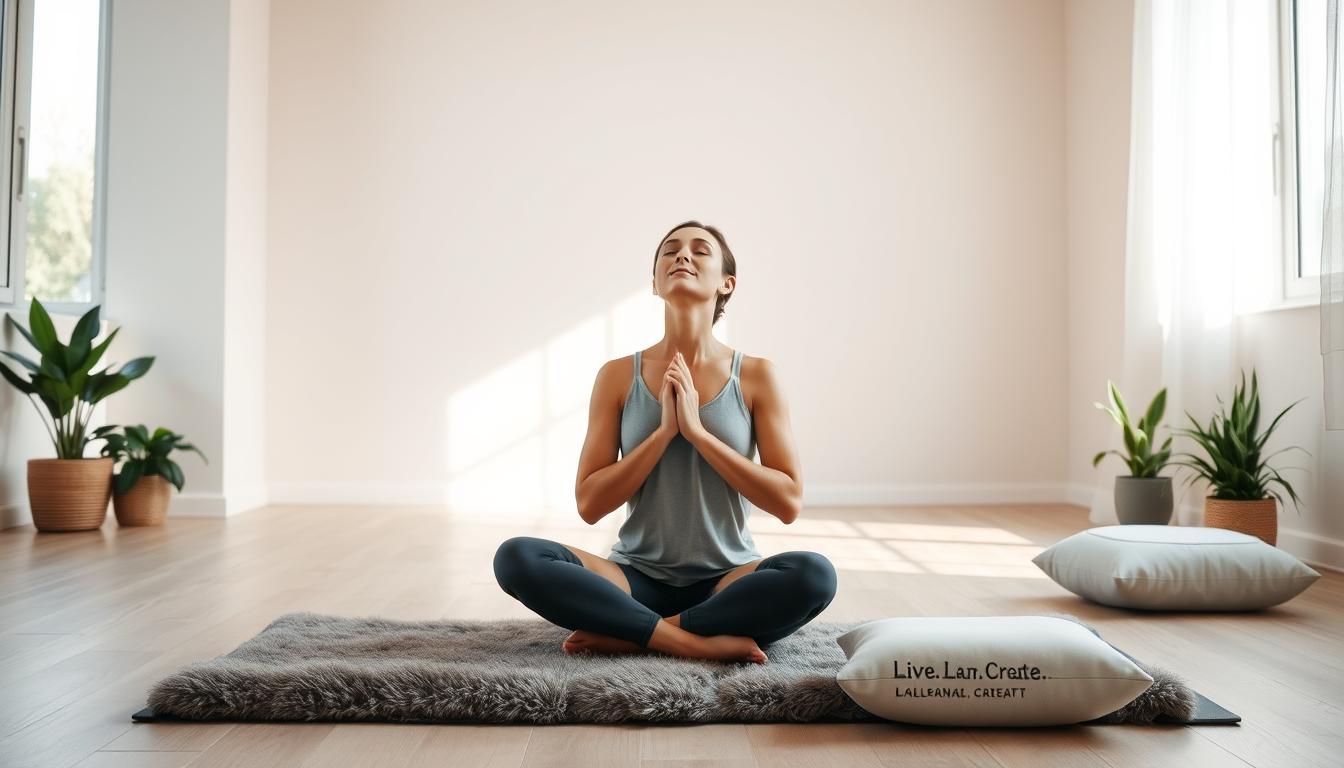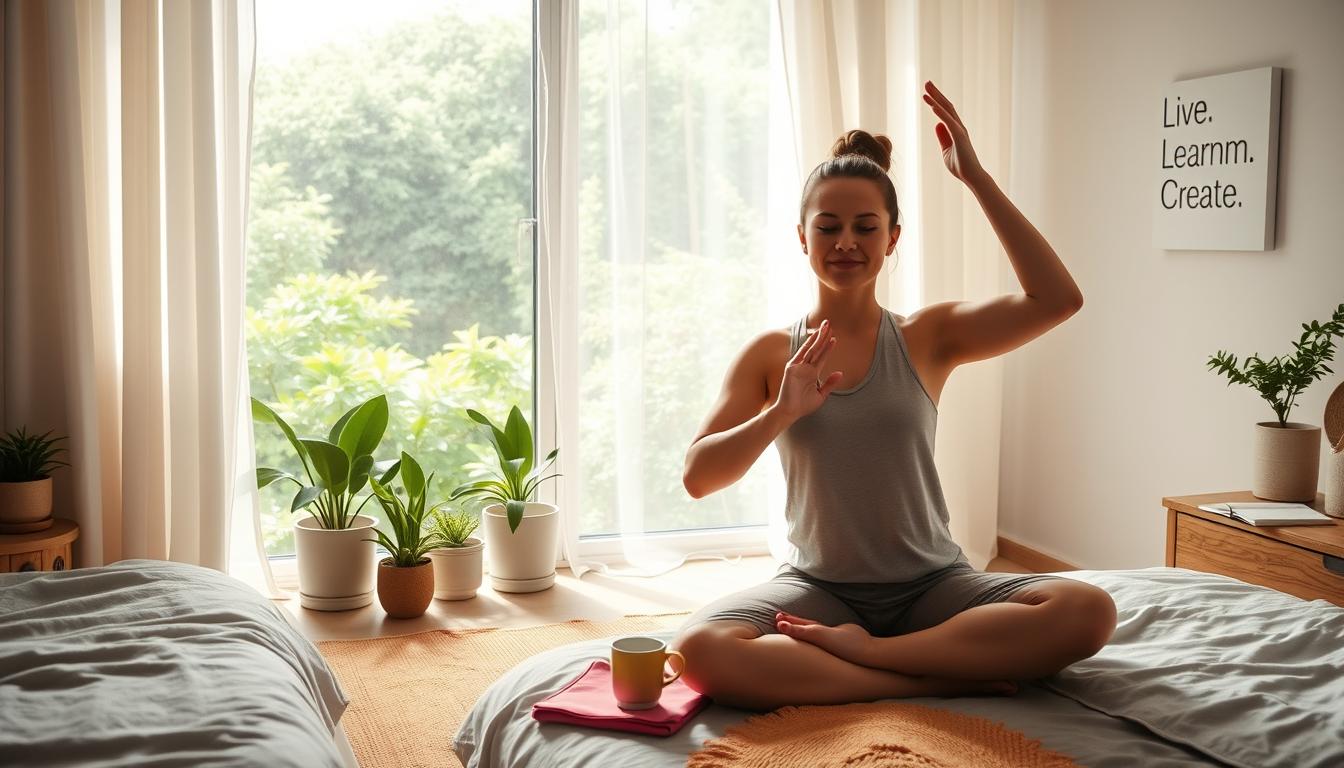Creating healthy habits isn’t about massive life overhauls or unsustainable changes. The true path to wellness lies in small, consistent actions that gradually transform your daily routine. Whether you’re feeling overwhelmed by life’s demands or simply seeking to enhance your overall wellbeing, these ten daily healthy habits can help you build a foundation for lasting physical health, mental clarity, and emotional balance.
In this guide, we’ll explore practical, science-backed habits that nurture both mind and body. You’ll discover how these simple practices can be seamlessly integrated into even the busiest schedules through effective habit-stacking techniques. The journey to better health begins with a single step – let’s take that step together.
Why Daily Healthy Habits Matter
Consistent daily healthy habits form the cornerstone of long-term wellbeing. Research consistently shows that small, positive changes in how you live each day create a happier, healthier you over time. Unlike quick fixes or fad trends, healthy habits aren’t about instant results or overnight transformations.
When healthy practices become part of your daily routine, they evolve into lifestyle habits that support sustained energy, better sleep, and overall wellbeing. Our bodies and minds thrive on routine – when we repetitively make choices that nourish us, it strengthens neural pathways in our brain, making these behaviors easier to maintain.
Did you know? Studies suggest it takes an average of 66 days for a new behavior to become automatic. This means consistency is key when establishing daily healthy habits!
The benefits of cultivating healthy habits extend far beyond physical health. They include:
- Increased energy and vitality
- Improved mental clarity and focus
- Enhanced emotional resilience
- Better stress management
- Stronger immune function
- Improved sleep quality
- Healthier relationships
- Greater sense of purpose and fulfillment
1. Morning Hydration Ritual

Starting your day with water is one of the simplest yet most impactful daily healthy habits you can adopt. After 7-8 hours without fluid intake, your body needs hydration to kickstart metabolism, flush toxins, and fuel your brain.
How to implement this habit:
- Place a glass of water by your bedside before sleeping
- Drink 16-20 ounces of water within 30 minutes of waking
- Consider adding lemon for flavor and additional health benefits
- Use a special cup or bottle that brings you joy
Proper hydration supports virtually every system in your body. Research shows that even mild dehydration can impact mood, energy levels, and cognitive function. By making morning hydration a non-negotiable part of your routine, you’re setting yourself up for better physical and mental performance throughout the day.
“Water is the driving force of all nature. The body’s need for it is second only to oxygen.”
2. Mindful Movement Breaks

In our increasingly sedentary world, incorporating regular movement throughout the day is essential for good health. Rather than viewing exercise as a separate activity that requires changing clothes and going to the gym, think of movement as medicine that can be taken in small doses throughout your day.
Simple ways to add movement to your day:
- Set a timer to stand and stretch every 30-60 minutes
- Take a 5-minute walking break after completing a task
- Practice desk yoga or gentle stretching between meetings
- Use the “talk and walk” method for phone calls
These micro-movement sessions help counteract the negative effects of prolonged sitting, boost circulation, reduce muscle tension, and clear mental fog. They’re particularly effective when paired with mindfulness – bringing your attention to how your body feels as you move.
Need movement inspiration?
Subscribe to our free wellness newsletter for weekly mindful movement break ideas that take less than 5 minutes.
3. Nourish With Whole Foods

The food you consume every day directly impacts your physical health, mental clarity, and emotional wellbeing. One of the most powerful daily healthy habits is prioritizing whole, nutrient-dense foods that fuel your body optimally.
Simple nutrition upgrades:
- Add an extra serving of vegetables to at least two meals daily
- Replace refined grains with whole grains like brown rice, quinoa, or oats
- Include a source of plant-based protein (beans, lentils, tofu) in at least one meal
- Keep pre-cut vegetables and fruits accessible for easy snacking
The key to sustainable nutrition is progress, not perfection. Rather than focusing on foods to eliminate, concentrate on adding more nutrient-rich options to your plate. This positive approach creates a healthier relationship with food and makes good nutrition a joyful practice rather than a restrictive one.
Mindful Eating Tip: Before meals, take three deep breaths to activate your parasympathetic nervous system. This “rest and digest” state improves digestion and helps you tune into hunger and fullness cues.
4. Prioritize Quality Sleep

Sleep is the foundation upon which all other healthy habits rest. Quality sleep is as important to our health as diet and exercise, serving as the body’s repair mechanism. It rejuvenates the mind, repairs cells, and revitalizes the body’s systems.
Create a sleep sanctuary:
- Maintain a consistent sleep schedule, even on weekends
- Create a cool, dark, and quiet sleeping environment
- Establish a calming bedtime routine (reading, gentle stretching, meditation)
- Limit screen exposure 1-2 hours before bed
Adults typically need 7-9 hours of quality sleep each night. When we prioritize sleep, we experience improved mood, better cognitive function, stronger immune response, and enhanced emotional regulation. Good sleep also supports healthy metabolism and hormone balance.
“Sleep is the best meditation.”
5. Practice Digital Detox

In today’s hyper-connected world, intentional breaks from screens and digital stimulation have become essential for mental wellbeing. Constant connectivity can lead to information overload, comparison fatigue, and diminished attention spans.
Digital wellness strategies:
- Designate tech-free zones in your home (bedroom, dining area)
- Implement a “digital sunset” 1-2 hours before bedtime
- Take regular “nature breaks” without devices
- Practice the 20-20-20 rule when using screens (every 20 minutes, look at something 20 feet away for 20 seconds)
Digital detox periods allow your brain to process information, engage in deeper thinking, and restore attention. They also create space for meaningful face-to-face connections and present-moment awareness – both crucial components of emotional wellbeing.
Attention Check: How many times have you checked your phone while reading this article? Digital habits are often unconscious. Bringing awareness to them is the first step toward healthier technology use.
6. Cultivate Mindfulness

Mindfulness – the practice of bringing non-judgmental awareness to the present moment – is a powerful daily healthy habit that transforms how we experience life. Even a few minutes of mindfulness practice each day can reduce stress, improve focus, and enhance emotional regulation.
Simple mindfulness practices:
- Begin with 5 minutes of focused breathing each morning
- Practice mindful eating by savoring one meal without distractions
- Take “mindful minutes” throughout the day to check in with your body and breath
- Engage in a walking meditation, focusing on the sensations of movement
Mindfulness doesn’t require special equipment or settings – it can be practiced anywhere, anytime. The key is consistency. By training your attention to return to the present moment, you develop greater awareness of thought patterns and emotional responses, creating space for more intentional choices.
“The present moment is the only time over which we have dominion.”
7. Connect With Nature

Humans have an innate connection to the natural world, yet modern living often separates us from this vital relationship. Spending time in nature – even brief periods – has been shown to reduce stress hormones, lower blood pressure, and improve mood and cognitive function.
Ways to incorporate nature into daily life:
- Take a 10-minute “green break” outdoors during your workday
- Bring elements of nature indoors with plants, natural materials, or nature sounds
- Practice “forest bathing” – mindful immersion in natural settings
- Tend to plants or a small garden, even if just on a windowsill
Nature connection doesn’t require wilderness expeditions. Urban parks, backyard spaces, or even watching the sky can provide meaningful contact with the natural world. The key is presence – allowing yourself to fully engage with natural elements through all your senses.
Nature Prescription: Research suggests that just 120 minutes of nature exposure per week significantly improves health and wellbeing. This can be divided into shorter sessions throughout the week.
8. Practice Gratitude

Gratitude – the practice of acknowledging and appreciating the positive aspects of life – is a powerful daily healthy habit that shifts our attention from what’s lacking to what’s present. Regular gratitude practice has been linked to improved mood, better sleep, stronger relationships, and even enhanced physical health.
Simple gratitude practices:
- Begin or end each day by noting three specific things you’re grateful for
- Write gratitude letters to people who have positively impacted your life
- Practice “gratitude pauses” during transitions in your day
- Create a gratitude jar where family members can add notes of appreciation
The most effective gratitude practices involve specificity and novelty. Rather than listing the same general items each day, look for new details to appreciate. This trains your brain to continually scan for the positive, creating a virtuous cycle of wellbeing.
“Gratitude turns what we have into enough, and more. It turns denial into acceptance, chaos into order, confusion into clarity.”
9. Nurture Social Connections

Human connection is a fundamental need that directly impacts our physical and mental health. Research consistently shows that people with strong social ties live longer, healthier lives with lower rates of depression and anxiety. Making meaningful connection a daily healthy habit is as important as nutrition and exercise.
Ways to strengthen social wellbeing:
- Schedule regular check-ins with loved ones (calls, texts, or in-person visits)
- Practice active listening in conversations, giving full attention
- Join groups aligned with your interests or values
- Perform small acts of kindness that foster connection
Quality matters more than quantity when it comes to social connections. A few deep, authentic relationships provide more benefit than numerous superficial ones. The key is reciprocity – creating space for both giving and receiving support, which builds resilience and emotional security.
Connection Tip: Try the “three good things” practice with a partner or friend – each person shares three positive experiences from their day, which builds positive emotion and strengthens bonds.
10. Engage in Reflective Practice

Taking time for reflection is a daily healthy habit that helps us process experiences, learn from challenges, and align our actions with our values. Whether through journaling, meditation, or contemplative walks, reflective practice creates space between stimulus and response, allowing for more intentional living.
Reflection techniques:
- Spend 5-10 minutes journaling about your experiences, insights, or questions
- Practice a brief evening review of your day, noting lessons and gratitudes
- Use guided reflection prompts to explore specific areas of life
- Create space for silent contemplation without external input
Reflection isn’t about rumination or dwelling on problems – it’s about curious, compassionate inquiry that leads to greater self-awareness and intentional choice. This practice helps bridge the gap between who we are and who we aspire to be, making personal growth a daily process rather than a distant goal.
“Life can only be understood backwards, but it must be lived forwards.”
Habit Stacking: The Key to Sustainable Change
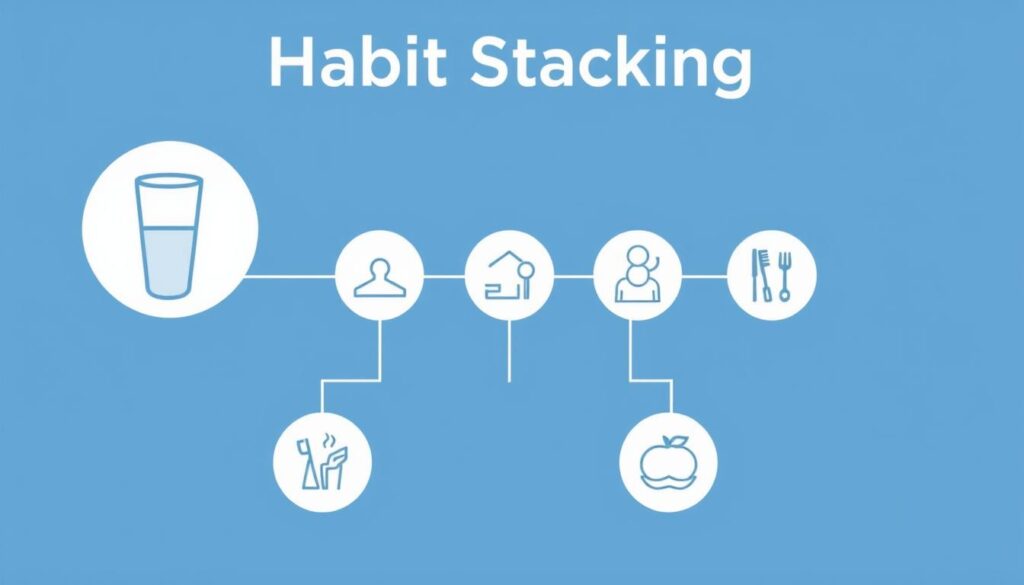
One of the most effective strategies for incorporating daily healthy habits into your life is habit stacking – attaching a new habit to an existing routine. This approach leverages the neural pathways of established behaviors to make new habits easier to remember and maintain.
How to create effective habit stacks:
Morning Stack Example:
- After turning off your alarm, drink a glass of water
- After drinking water, practice 5 minutes of mindful breathing
- After breathing practice, stretch for 3 minutes
- After stretching, write three items of gratitude
Evening Stack Example:
- After dinner, take a 10-minute nature walk
- After returning home, disconnect from devices
- After putting devices away, prepare tomorrow’s healthy lunch
- After lunch prep, do a brief reflection journal entry
The formula is simple: “After I [current habit], I will [new habit].” Start with just one or two new habits before expanding your stack. Keep each action small and specific – this increases the likelihood of consistency, which is the true key to transformation.
Habit Stacking Tip: Choose a trigger that happens at a consistent time every day. Irregular triggers lead to irregular habits. Morning routines, mealtimes, and bedtime rituals make excellent anchors for new habits.
Your Journey to Sustainable Wellness
Implementing daily healthy habits isn’t about perfection – it’s about progress and consistency. Start with just one or two practices that resonate most strongly with you, and gradually build from there. Remember that small, consistent actions lead to significant transformation over time.
The most sustainable approach to wellness embraces both structure and flexibility. Create systems that support your healthy habits while allowing for adaptation when life inevitably throws curveballs. And perhaps most importantly, practice self-compassion throughout your journey – celebrating progress, learning from setbacks, and recommitting with kindness.
These ten daily healthy habits provide a framework for mind-body wellness that can be personalized to your unique needs and circumstances. By integrating these practices into your life through habit stacking and consistent attention, you’re not just changing what you do – you’re transforming who you become.
Explore a range of resources designed to enhance your creative skills. Whether you’re looking for inspiration or structured guidance, Carmen Galloway’s works provide valuable insights into the creative process.
Join interactive courses that challenge you to think differently and expand your creative horizons. Each course is crafted to help you develop a robust creative mindset.
Continue Your Wellness Journey
Subscribe to our weekly newsletter for science-backed strategies, practical tips, and supportive guidance to help you maintain your daily healthy habits.
Frequently Asked Questions About Daily Healthy Habits
How long does it take to form a new healthy habit?
While the popular belief is that habits take 21 days to form, research suggests it actually takes an average of 66 days for a new behavior to become automatic. However, this varies widely depending on the person and the specific habit. Simple habits may form more quickly, while complex behaviors can take longer. The key is consistency and starting with habits small enough to maintain even on difficult days.
Which healthy habit should I start with first?
The best habit to start with is one that: 1) feels manageable given your current life circumstances, 2) addresses a foundational aspect of health like sleep, hydration, or movement, and 3) aligns with your personal values and goals. Many health experts recommend beginning with either improved sleep habits or morning hydration, as these provide energy and clarity that support other healthy behaviors.
How can I maintain healthy habits when traveling or during busy periods?
During disruptions to your routine, focus on maintaining simplified versions of your core habits rather than abandoning them completely. For example, a 30-minute workout might become a 5-minute stretch session, or an elaborate meal prep might become ensuring you eat one vegetable serving at each meal. Having predetermined “minimum viable habits” helps maintain consistency without creating additional stress during challenging periods.
What if I miss a day? Have I broken my habit streak?
Missing a day doesn’t erase your progress. Research on habit formation shows that occasionally missing your habit doesn’t significantly impact long-term habit development, provided you return to the behavior as soon as possible. What matters most is your overall consistency over time, not perfection. If you miss a day, practice self-compassion and simply resume your habit the next day without self-judgment.
Transform your home into a more peaceful and mindful sanctuary. Creating a Zen-inspired home environment is a core part of the “Live.Learn.Create” theme, focusing on peace, mindfulness, and a clutter-free space. Here is a curated list of Zen home items.
The Zen Essentials
These items are the building blocks of a calm, intentional living space.
Candles & Scents:
Scented Candles: Look for calming, natural scents like sandalwood, lavender, white tea, or bergamot. Choose candles made with soy or beeswax for a clean burn.
Essential Oil Diffusers: A minimalist, sleek diffuser made of bamboo, ceramic, or glass.
Essential Oil Sets: Look for blends specifically for relaxation, focus, or sleep.
Incense & Burners: Natural incense sticks (e.g., palo santo, sage) with a simple, elegant burner.
The Zen Decor
This is about incorporating natural elements and simple design.
Natural Materials:
Wood or Bamboo Trays: For organizing candles, stones, or other small items.
Ceramic Vases: Simple, unglazed ceramic vases in neutral colors like white, beige, or gray.
Minimalist Art: Simple line drawings, abstract prints, or nature-inspired artwork.
Hand-Carved Stone Coasters: Or other small stone sculptures.
Textiles:
Linen or Cotton Throws: A soft, neutral-colored throw blanket to add warmth.
Jute or Sisal Rugs: These add natural texture and grounding to a space.
Meditation Cushions (Zafu) & Mats (Zabuton): These provide comfort for meditation and add a serene touch to a room.
The Zen Ambiance
These items help create a peaceful sensory experience.
Lighting:
Himalayan Salt Lamps: These provide a warm, soft glow.
Japanese-style Paper Lanterns: For a soft, diffused light source.
Dimmable Smart Bulbs: To easily control the warmth and brightness of your lighting.
Sound:
Tabletop Water Fountains: The gentle sound of running water is incredibly calming.
Wind Chimes: Made from natural materials like bamboo or metal for a soft sound.
Bluetooth Speakers: Small, aesthetically pleasing speakers for playing ambient or meditation music.
Nature:
Bonsai Trees or Air Plants: Low-maintenance indoor plants that bring life and a touch of nature indoors.
Zen Gardens: A small, tabletop sand garden with a rake and stones for a meditative ritual.
Decorative Rocks & Pebbles: For bowls or as a decorative element.
Best Sellers https://amzn.to/3Vet1tI
New Releases https://amzn.to/4mwLjTi
Amazon Movers & Shakers https://amzn.to/4fPsZlP
Mindfulness Coloring Books https://amzn.to/4fQ0wMx
Personal Growth Coloring Books https://amzn.to/4lJeRf0
Health & Wellness https://amzn.to/4oRt24C
Zen Home Decor https://amzn.to/3VeA3i6
Zen Garden Decor https://amzn.to/4mXjT8D
Zen Garden https://amzn.to/3HQTVVB
Mindfulness & Meditation:
Physical Wellness:
Habit & Productivity Tools:
Books:
Best-selling personal development books (Mindset, The 7 Habits of Highly Effective People, The Subtle Art of Not Giving a F*ck)
Books on a variety of skills (coding, photography, writing.)
Educational Gadgets:
Smart pens that digitize notes (e.g., Rocketbook)
Portable scanners for digitizing documents
Laptops, tablets, and accessories
Create (Creativity, Innovation, Projects)
These products cater to your creative side, whether you are a artists, writer, or DIY enthusiasts.
Creative Supplies:
Adult coloring books or “paint-by-sticker” books
Craft kits (e.g., candle-making, pottery, embroidery)
Digital Creation Tools:
General Inspiration & Making:















